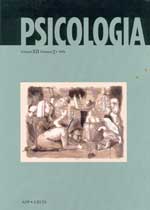Perception of group variability: Theoretical frameworks, empirical studies and current trendes
DOI:
https://doi.org/10.17575/rpsicol.v12i2.580Keywords:
-Abstract
Normally outgroup members are perceived in a less differentiated and complex fashion than ingroup members. This outgroup homogeneity effect has been one of the most important fields of interest in research on intergroup perception. In this article, measures of perceived group variability, main results and explanations for this effect are discussed. Moreover, recnt trends in research are presented: namely, an overview of contextual factors affecting perceived group variability, such as the majority and minority contexts, and the application of perceived group variability to other areas of social psychology. Finally, the need to consider perceived group variability in relation to functional needs of the social perceiver is discussed.


